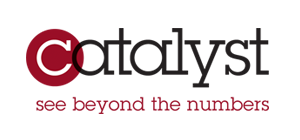At 7:30pm tonight, Scott Morrison delivered his third budget with a forecast budget deficit of $18.2 Billion for 2017-18, $14.5 Billion for 2018-19, and a surplus of $2.2 Billion for 2019-20, $11 Billion for 2020-21 and $16.6 Billion for 2021-22.
The treasurer announced that this budget is about creating a stronger economy, creating more jobs, guaranteeing essential services, and the government living within its means. The treasurer announced the following 5 things that the government must do in this year’s budget to further strengthen the economy:
- Provide tax relief;
- Keep backing business to invest and create jobs;
- Guarantee the essential services that Australians rely on;
- Keep Australians safe;
- Ensure that the government lives within its means by keeping its expenditure under control
Key Forecasts
- 75% economic growth is expected for 2017-18, 3% for 2018-19, and 3% for 2019-20, 2020-21, and 2021-22
- 25% nominal GDP is expected for 2017-18, 3.75% for 2018-19, 4.75% for 2019-20, and 4.5% for 2020-21 and 2021-22
- 5% unemployment is expected for the 2017-18 year, 5.5% for 2018-19, 5.25% for 2019-20 and 2020-21, and 5% for 2021-22
Key Change for Small Business
The treasurer announced that in this budget the government is backing business to create jobs.
The key tax benefit announced in this budget for small business is that the immediate tax deduction for assets costing less than $20,000 will be extended for another year for businesses turning over less than $10m per year. This tax benefit was previously legislated to end on 30 June 2018.
In addition to this, the government proposes to enact the following measurers which will impact small businesses:
- From 1 July 2019, remove tax deductions for payments of wages to employees where a business fails to withhold PAYG from the wages;
- From 1 July 2019, remove tax deductions for payments to contractors that don’t provide an ABN and the business does not withhold PAYG from the payments;
- From 1 July 2019, limit cash payments made to a business for goods and services to $10,000.
Key Changes for Individuals
The key budget announcements that impact on individuals are:
- From 1 July 2018 to 30 June 2022, a new “Low and Middle Income Tax Offset” will be introduced to provide tax relief of up to $530 per year. Taxpayers earning under $37k will get a $200 offset, taxpayers earning between $37k and $48k will get an offset up to $300, and taxpayers earning between $48k and $90k will be eligible for the maximum offset of $530. The maximum offset will phase out between $90k and $125k;
- From 1 July 2018, the top threshold of the 32.5% tax bracket will increase from $87k to $90k;
- From 1 July 2022, the top threshold of the 19% tax bracket will increase from $37k to $41k;
- From 1 July 2022, the top threshold of the 32.5% tax bracket will increase from $90k to $120k;
- From 1 July 2022, the maximum Low Income Tax Offset will increase from $445 to $645;
- From 1 July 2024, the top threshold of the 32.5% tax bracket will increase to $200k, removing the 37% tax bracket completely. At the same time, the top tax bracket of 45% will start at incomes over $200k;
- The previously proposed Medicare Levy increase from 2% to 2.5%, commencing 1 July 2019, will not proceed.
Key Changes Relating to Superannuation
The government has announced the following superannuation changes:
- From 1 July 2019, the maximum number of members in new and existing Self-Managed Superannuation Funds (SMSFs) will increase from 4 to 6;
- From 1 July 2019, individuals aged 65 to 74 will be exempt from passing the work test in order to make voluntary contributions, if they have superannuation balances below $300k in the first year that they do not meet the work test.
- From 1 July 2019, SMSFs that have a history of 3 consecutive years of clear audit reports and have lodged their tax returns on time, will only need to have their financial statements audited every 3 years instead of annually;
- From 1 July 2019, fees charged by superannuation funds will be capped at 3% for accounts with balances below $6,000;
- From 1 July 2019, superannuation funds will not be allowed to charge exit fees when a member decides to rollover to another fund.
Key Change Relating to GST
From 1 July 2019, foreign tour operators selling Australian hotel accommodation will be required to register for GST and charge GST on their hotel accommodation sales, if their annual turnover of Australian accommodation is $75k or more per year. Foreign tour operators have been exempt from being obligated to register for GST and charge Australian GST on their Australian hotel accommodation supplies since 2005. Australian hotel accommodation is increasingly being booked online from offshore based suppliers and this change will bring them in line with Australian accommodation suppliers.










Sorry, comments are closed for this post.